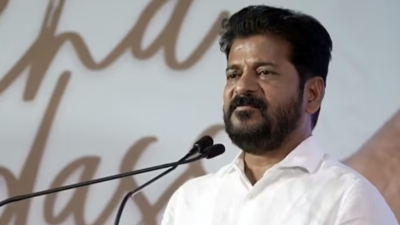ARTICLE AD BOX

Telangana Chief Minister Anumula Revanth Reddy has framed education as the state’s most decisive “weapon” against poverty, announcing an overhaul of the sector amid a troubling admission: Of the lakhs of engineering graduates emerging from colleges every year, not even 10% secure jobs, he told PTI. Speaking at an interaction with retired bureaucrats, academics, and stakeholders, the Chief Minister said Telangana requires a new education policy designed to ensure that students not only receive quality instruction but also acquire employable skills aligned with a changing economy.
A structural diagnosis of failure
Revanth Reddy’s candour underscored a structural crisis in higher education: A glut of engineering graduates with scant employability.
He attributed the disconnect between degrees and jobs to the absence of requisite skills. This recurring refrain that an economy cannot be sustained by paper credentials without practical expertise points to an urgent need for policy recalibration.The Chief Minister lamented that despite heavy allocations to education, government schools continue to lose students to private institutions that provide early childhood programmes like nursery and LKG (Lower Kindergarten), while state-run schools begin only from Class 1. Parents, he noted, hesitate to transition children back to the public system once private schooling begins, citing closer attention and structured learning, IANS reported.
A call for systemic overhaul
According to PTI, Reddy said Telangana’s education sector requires transformation so that students can harness opportunities across sectors, domestically and globally. “Except education, there is no weapon for poverty alleviation now,” he remarked, recalling how earlier state initiatives distributed land and funds for social welfare but such resources are no longer available.To back his words with action, the state has initiated teacher recruitment, promotions, and transfers to maintain a healthier teacher-student ratio.
It has also converted Industrial Training Institutes (ITIs) into Advanced Technology Centres and set up a Young India Skills University to integrate vocational and technological training into mainstream education.The government now plans to establish a dedicated Education Corporation to channel funds into infrastructure and raise standards. Reddy reiterated his administration’s willingness to spend “liberally” on education, describing it as an investment rather than expenditure, according to IANS.
Lessons from history, demands of the future
Drawing a parallel to India’s first Prime Minister Jawaharlal Nehru, who built premier institutions like the Indian Institutes of Technology (IITs), Reddy observed that today’s education system has not kept pace with the demands of a liberalised, globalised economy. While Indian youth have excelled in the software sector thanks to the proliferation of engineering colleges, the employability ratio remains abysmally low, an irony that signals a widening gulf between aspirations and outcomes.“The new education policy must be a beacon for the nation,” he said at a review meeting, adding that it should blend language, foundational knowledge, and skills to allow Telangana’s students to compete on the world stage, IANS reported.
Vision 2047 and a collective push
The proposed education overhaul will be incorporated into the state’s long-term “TelanganaRising 2047” vision document, slated for release on December 9. The Chief Minister has urged educationists to form sub-committees and contribute recommendations for the policy blueprint.In combining a recognition of past deficiencies with a call to equip students for the future, Revanth Reddy has positioned education as both a tool of social justice and an engine of competitiveness. His sharp admission that nine out of ten engineering graduates remain unemployed is not merely a statistic; it is a warning that unless systemic corrections are made, the demographic dividend could well turn into a crisis of wasted potential.(With inputs from agencies)



.png)
.png)
.png)
















 1 hour ago
7
1 hour ago
7









 English (US) ·
English (US) ·